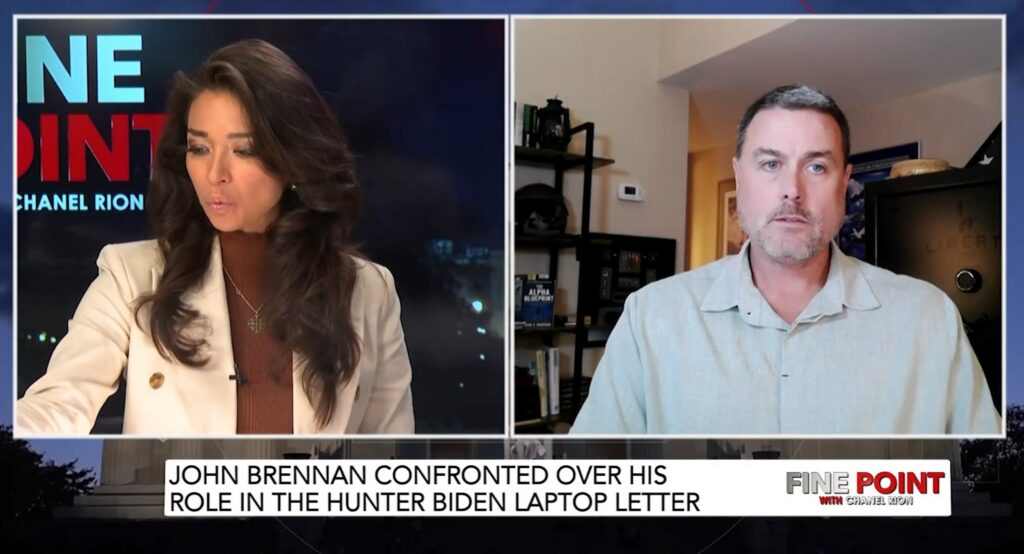Former CIA Operations Officer Talks about Preparing Generation Alpha for Age of AI
The discussion between Chanel Rion and former CIA Operations Officer Adam Hardage focused on the recent disclosures surrounding former CIA Director John Brennan’s alleged role in the coordination and approval of a letter signed by 51 former intelligence officials during the 2020 election cycle. The interview examined how that letter, which claimed the Hunter Biden laptop story carried the hallmarks of Russian disinformation, came to shape media narratives, public perception, and political outcomes at a critical moment. Hardage, drawing on his background in intelligence operations, walked through the mechanisms by which senior intelligence figures influence information channels, both publicly and through private networks of former officials and think-tank relationships.
The interview began with context regarding the original laptop story, its emergence during the final weeks before the 2020 election, and how the narrative of Russian interference quickly became the dominant framing in mainstream media. Rion and Hardage discussed how the intelligence community’s public positioning in the matter carried significant weight, as former agency officials are often treated by journalists and policymakers as authoritative and objective. The conversation emphasized that the signatories of the letter had no direct access to the physical laptop or any classified evidence suggesting Russian involvement, yet the statement was presented to the public as an expert consensus.
Hardage described how the intelligence community operates in terms of messaging coordination, outlining the informal but well-understood relationships between former agency leaders, media outlets, and political advisors. He explained that these networks persist long after officials leave government service, allowing them to exert influence without the formal constraints placed on active agency personnel. The interview characterized Brennan as a central figure in this influence ecosystem, pointing to his long-standing relationships with media commentators and political operatives who are familiar with using intelligence-adjacent language to frame narratives in ways that appear authoritative and urgent.
Hardage has a Hard Edge
The conversation also examined the impact of the letter on public understanding of the Hunter Biden story. According to Hardage, the coordination behind the statement served to create what appeared to be a unified, expert-based dismissal of the laptop’s authenticity at a moment when public opinion could still be shaped. The interview discussed how this contributed not only to widespread doubt about the laptop’s contents, but also to the suppression of the story by social media platforms and traditional news outlets. Rion and Hardage reviewed the timeline by which platforms acted to limit sharing of the reporting, noting how quickly the narrative shifted once the intelligence letter was released.
Rion guided the discussion into the broader implications for trust in intelligence institutions. Hardage emphasized that the problem was not limited to the original letter or Brennan’s alleged role, but part of a larger trend in which intelligence figures have become active participants in domestic political messaging. The interview raised the concern that when intelligence credibility is used to shape election-related narratives, it risks eroding public confidence in national security institutions. Hardage explained that intelligence agencies operate most effectively when they are perceived as neutral, and that political deployment of intelligence prestige undermines that perception.
The conversation concluded with reflection on what these revelations indicate about the evolving relationship between intelligence leadership and electoral politics. Rion and Hardage discussed the potential long-term consequences for governance, media trust, and the boundaries between national security institutions and political campaigns. They suggested that the public disclosure of these coordination efforts will continue to shape scrutiny of former intelligence officials, the media’s reliance on their assessments, and the standards by which claims of foreign interference are evaluated in future election cycles.
In closing, the discussion emphasized the need for clearer guardrails to prevent intelligence credentials from being used as political leverage during election periods. Hardage noted that accountability frameworks, transparency mechanisms, and a renewed cultural expectation of neutrality within the intelligence community may be necessary to restore public confidence and ensure that national security expertise is not repurposed for partisan advantage.


